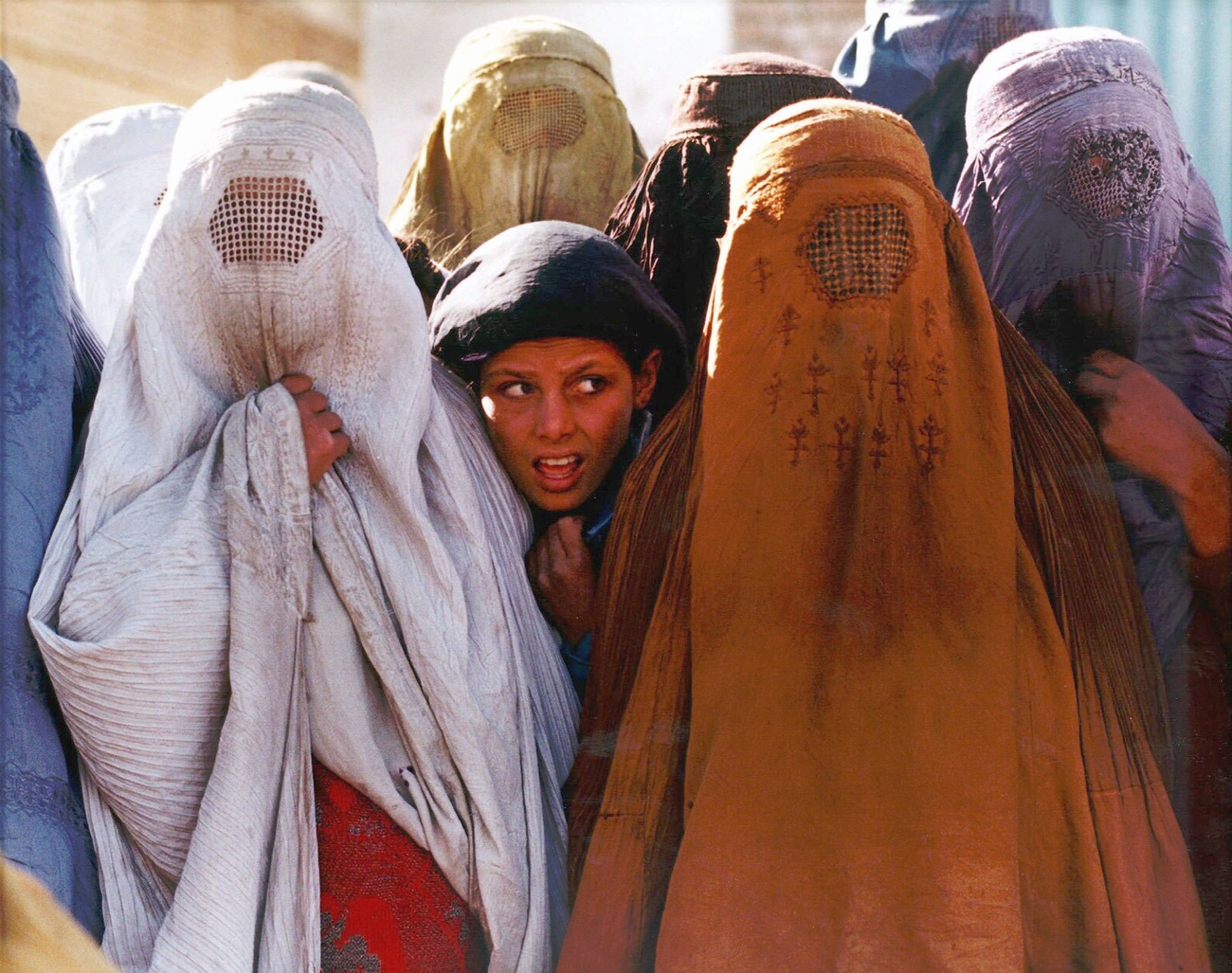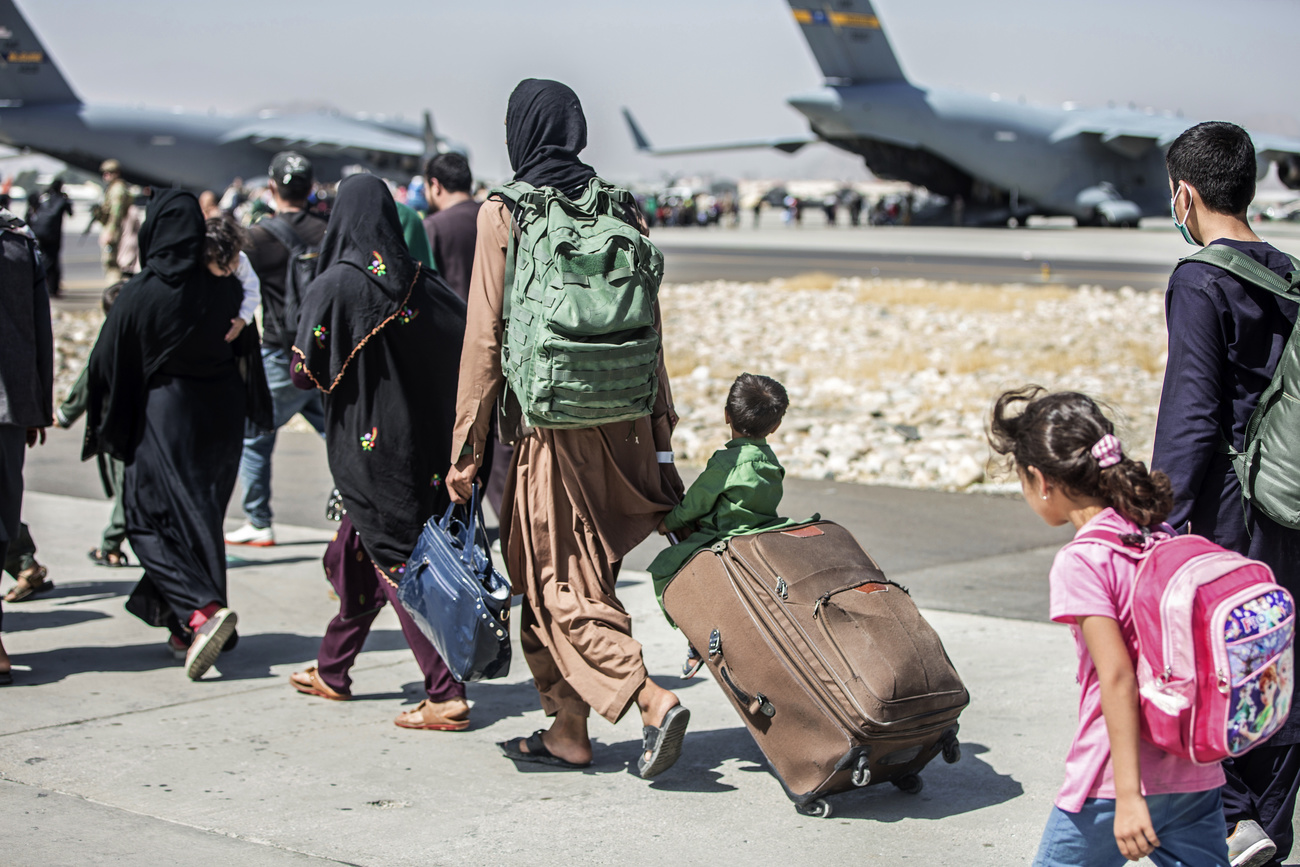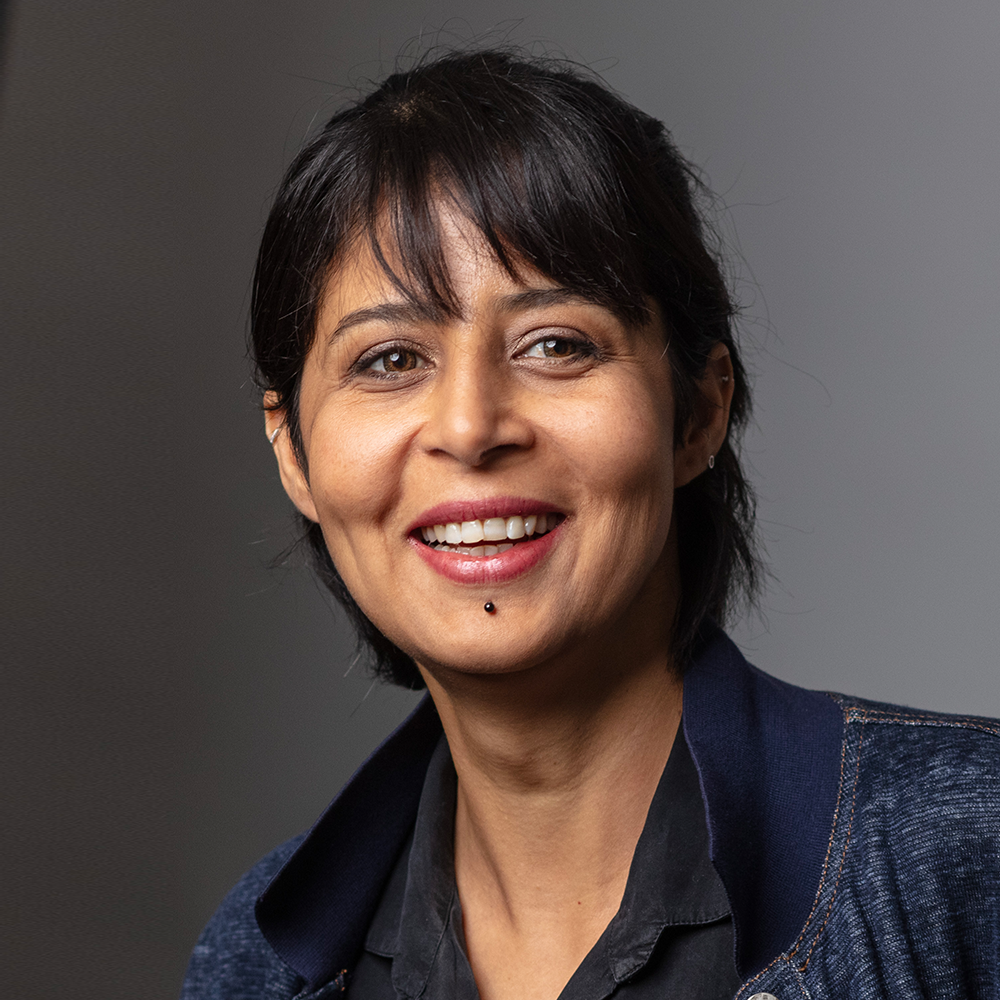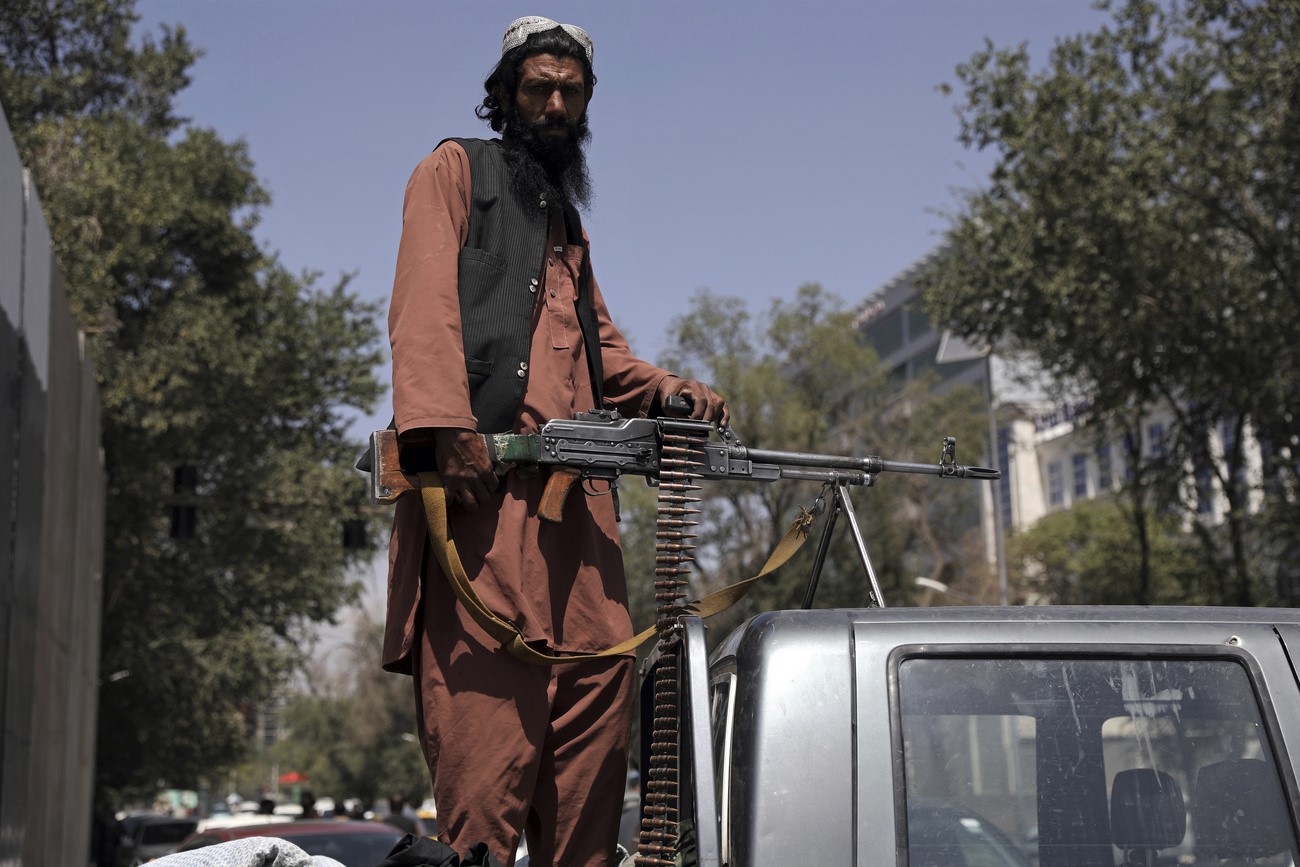‘My ideal Afghanistan would look just like Switzerland’

Why, after 20 years of training, did the Afghan army vanish into thin air before the advancing Taliban? Afghan filmmaker Mortaza Shahed, who lives in Bern, has a clear answer.
SWI: Afghanistan has been striving for peace for over 40 years. The country has experienced wars, the Communists, the Soviet intervention, the Mujahideen, the Taliban, the US intervention and now the return of the Taliban. What thoughts and feelings do the latest scenes unfolding in Afghanistan arouse in you?
Mortaza Shahed: My father died at the age of 90 in the hope of still seeing peace. I, too, returned to Afghanistan after the US intervention, also believing in peace. Now my eight-year-old daughter sees the power struggles and hopes they will end and that peace will come.
When the Taliban gained power in Afghanistan in 1996, I was still a child and was living with my parents as a refugee in Iran. I followed everything that was happening on television back then, as I am now. But no matter whether as a child or an adult, I was afraid then and am afraid now, and I have many questions.

SWI: Many people watching developments in the country in the media cannot fathom how an army could disperse so quickly and why the soldiers did not fight. Can you explain this?
M.S.: It was a political decision. The president was a Pashtun and he did not want to fight the Taliban, who are also from the Pashtun ethnic group. The government never really took action against terrorism, because our presidents are traitors and because religion and ethnicity are key in determining loyalties.
SWI: Do you think the United States and NATO never really understood the tribal structure of Afghan society?
M.S.: The US wanted to pull out of Afghanistan at all costs, so they signed the agreement and abandoned us to the Taliban. The withdrawal was a bad decision, but I cannot imagine that they were unaware of what would happen afterwards.
The Afghan filmmaker Mortaza Shahed campaigns for refugees in Switzerland. He himself grew up as a refugee in Iran and belongs to the Hazara ethnic group, the third-largest population group in Afghanistan, after the Pashtuns and Tajiks. This minority was particularly oppressed under the Taliban and their mosques targeted in attacks. Millions of Hazara have fled the country in recent years.
After the US military intervention and fall of the Taliban, Shahed returned to Afghanistan in 2003. Ten years later, he had to leave his country again with his wife and one-year-old daughter, after escaping an attempted kidnapping for making a political film. He fled to Switzerland, where he was granted refugee status. Here he went on to shoot the film Paradise Lost, which “gives deep insight into the soul of a refugee who is afraid of dying without ever being able to return home, or ever having had the chance to have a good life”.
SWI: Some people think that a Taliban government could herald a return to peace, even if the price is the end of freedom. What do you think?
M.S.: At the moment, Afghan men and women have lost both. We don’t even know if the fighting is over. The son of Ahmed Shah Massoud, former leader of the Northern Alliance, recently declared war on the Taliban. Other soldiers who have deserted could join him. The last time the Taliban occupied Kabul, they attacked universities and hospitals, killed thousands of people and then imposed a brutal regime. That’s not what peace looks like.

More
What’s next for the women of Afghanistan?
SWI: Do the Taliban have a lot of support in the countryside?
M.S.: Yes, especially in the south and east of the country, but I don’t think they are in the majority there. Most people – especially in big cities – do not accept this extremist government or a Sharia government (which introduces Islamic Sharia laws). They want to keep their freedom.
SWI: Do your relatives and friends in Afghanistan have the same fears?
M.S.: Everyone there is scared. The Taliban are playing to the media. But on social media we can see videos that show what they are really doing. They go from house to house and arrest people who worked for the government.
I’m following these developments and am afraid for my brother, whom I have not yet been able to bring to Switzerland. People have existential fears. With the withdrawal, all the gains of the past 20 years have been wiped out, all the achievements in terms of human rights, children’s education and especially girls’ and women’s rights. And now most Afghans want to leave the country.
SWI: What would Afghanistan look like if you could choose?
M.S.: My ideal Afghanistan would look just like Switzerland, a country where different linguistic communities, ethnic groups and religious followers live together in a federal state. Unfortunately there never was a common Afghan identity, and the neighbouring countries have a strong influence in domestic politics. This is why we have failed against the Taliban after 20 years.
Translated from German by Julia Bassam
More

In compliance with the JTI standards
More: SWI swissinfo.ch certified by the Journalism Trust Initiative














Join the conversation!